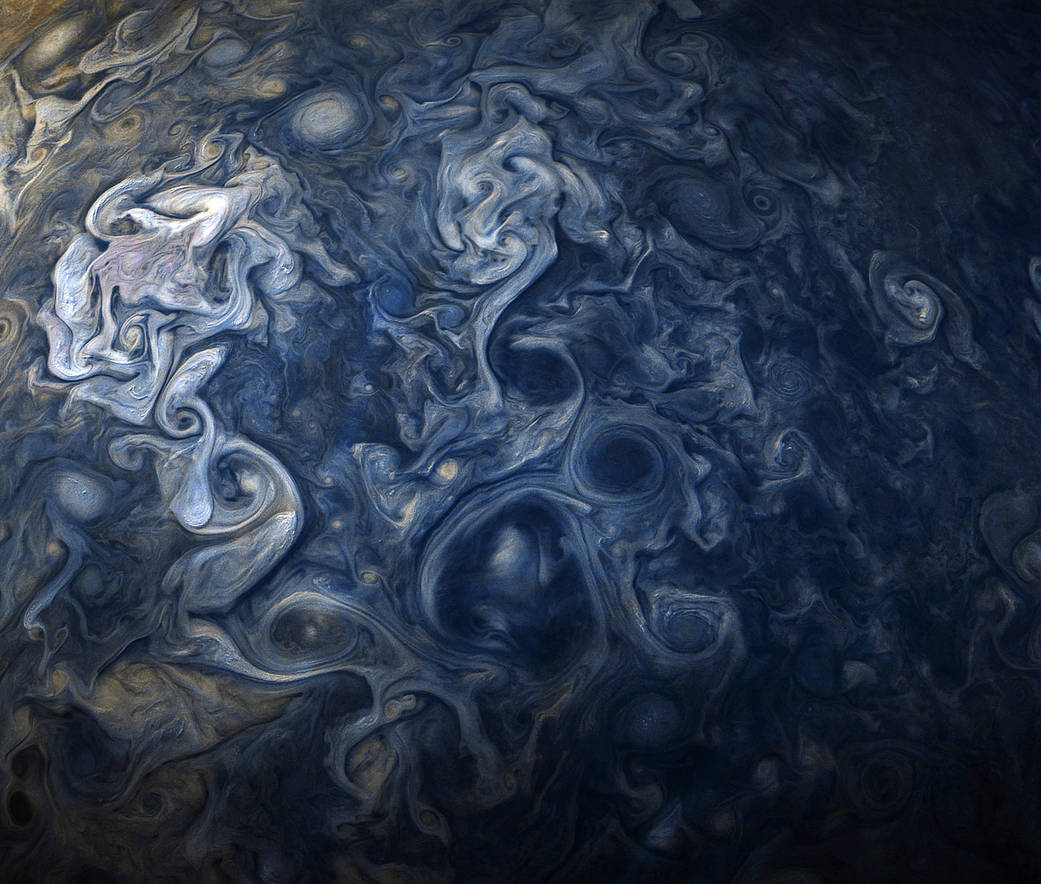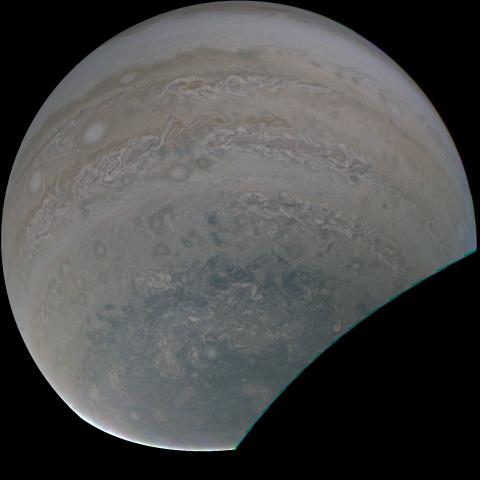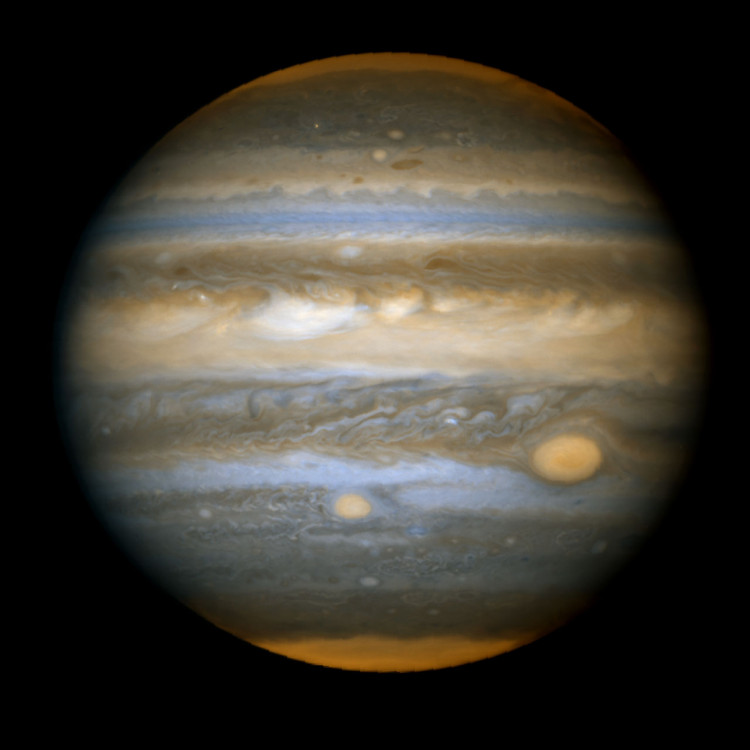This is a really good question. I suspect the color in the image has been enhanced. I’ve been trying to find a scientific reason that the clouds could appear blue, but haven’t found anything conclusive.
However, I did find a NASA page with raw images of Jupiter.
Here’s a raw image:
Here’s an image that’s been color-enhanced:

It’s not uncommon for space images to be color-enhanced. On the one hand, it may feel less authentic. On the other hand, the visible light levels in space may be insufficient for our expectations and uses anyway. Although I don’t know the origin of the picture at the top of this page, I know that it’s common practice for space photos to be enhanced. In fact they’re often taken in non-visible spectrums and fully converted to something humans can see and comprehend. Ever see detailed, colorful photos of galaxies? They were probably taken in X-ray and colorized in processing. Cool as it would be, you wouldn’t see those colors in real life.
It’s not uncommon for space images to be color-enhanced. On the one hand, it may feel less authentic. On the other hand, the visible light levels in space may be insufficient for our expectations and uses anyway.
Another thing to consider is that human perception of color in celestial objects is often just wrong, so enhancing the color of certain objects is more true than what we often see ourselves.
The sun is the same color all the time: white, consisting of a broad spectrum of all the wavelengths in the visible light range. But our atmosphere scatters the different wavelengths differently, so we see a blue sky and we see yellow, orange, and red sunsets. The atmospheric effects are happening all the time, with all the other light that happens to hit our planet, like the moon seeming to change color while reflecting the same white sunlight.
The stars in the sky are all sorts of different colors, but appear white to us, because our color-blind rods are much more sensitive than our color-sensitive cones, and the dimness of starlight just all looks like faint white lights regardless of whether the star happens to be red, yellow, blue, or white.
Meanwhile, relativistic effects might actually shift wavelengths and resolution, too, whether we’re talking about redshift or gravitational lensing, and asking what the “true” image is supposed to be.
So when we take a long exposure of something in space, that itself may represent something that the human eye can’t see. Using colors to represent the different wavelengths actually present may also require adjustment of what physical filters are used on the capture, and how the actual sensor is configured to account for different wavelengths (including potentially wavelengths not within the visible spectrum), and to account for literal noise captured by the sensor.
Astrophotography needs to make choices about how to translate sensor data to an actual human-visible image displayed on a screen with its own limited color space of what its pixels can display, or printed on paper with its own limited color space of what inks are available for printing.
The junocam page has raw shots from the actual device: https://www.msss.com/all_projects/junocam.php

Caption of another:
Multiple images taken with the JunoCam instrument on three separate orbits were combined to show all areas in daylight, enhanced color, and stereographic projection.
In other words, the images you see are heavily processed composites…
Dare I say, “AI enhanced,” as they sometimes do use ML algorithms for astronomy. Though ones designed for scientific usefulness, of course, and mostly for pattern identification in bulk data AFAIK.



